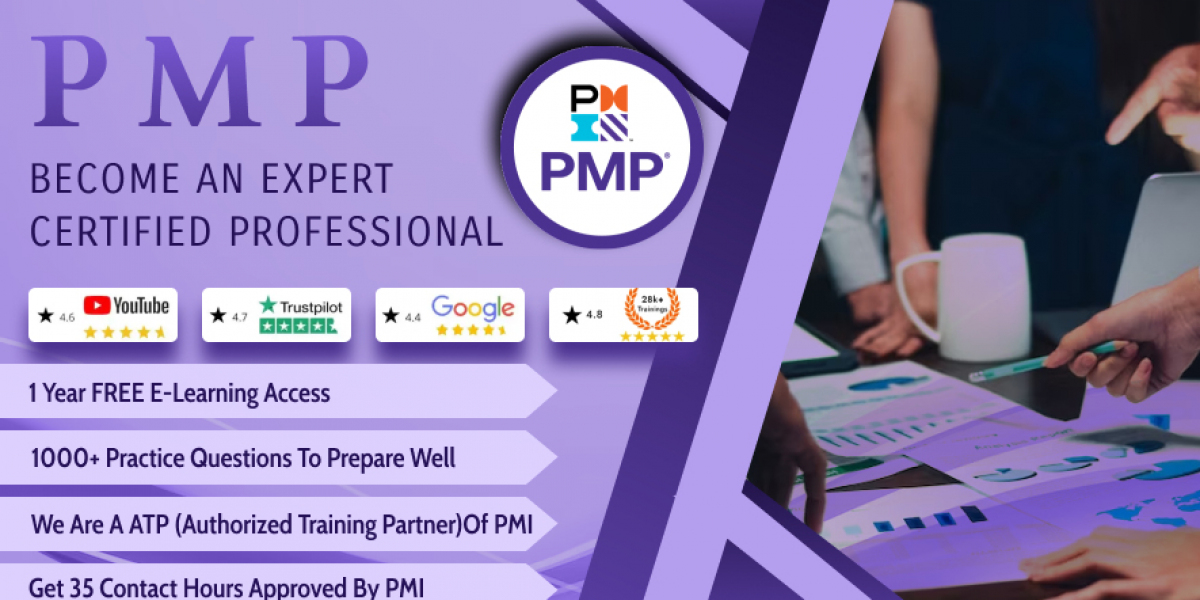The Project Management Professional (PMP) certification is globally recognized as a mark of excellence in project management. For professionals seeking to advance their careers or validate their expertise in project management, obtaining the PMP certification can be a significant milestone. However, preparing for and passing the PMP exam requires dedication, strategic planning, and a solid understanding of project management principles. In this comprehensive guide, we'll explore the key steps to prepare for and ace the PMP exam.
Understanding the PMP Exam
Before diving into preparation strategies, it's essential to understand the structure and content of the PMP exam. The PMP exam is designed to assess an individual's knowledge and understanding of project management concepts, processes, and best practices as outlined in the Project Management Body of Knowledge (PMBOK) Guide – Sixth Edition, published by the Project Management Institute (PMI).
The exam consists of 200 multiple-choice questions, which cover five process groups and ten knowledge areas outlined in the PMBOK Guide. These process groups include Initiating, Planning, Executing, Monitoring and Controlling, and Closing. The ten knowledge areas encompass Project Integration Management, Project Scope Management, Project Schedule Management, Project Cost Management, Project Quality Management, Project Resource Management, Project Communications Management, Project Risk Management, Project Procurement Management, and Project Stakeholder Management.
Step-by-Step Preparation Guide
Review the PMP Exam Handbook: The PMP Exam Handbook provided by PMI offers valuable information about exam policies, eligibility requirements, and the examination content outline. Familiarize yourself with the handbook to understand the exam structure, eligibility criteria, and application process.
Meet the Eligibility Requirements: Before applying for the PMP exam, ensure that you meet the eligibility criteria set by PMI. As of 2024, PMI requires candidates to have either a secondary degree (high school diploma, associate’s degree, or global equivalent) with at least five years of project management experience, along with 35 hours of project management education, or a four-year degree (bachelor’s degree or global equivalent) with at least three years of project management experience and 35 hours of project management education.
Understand the PMBOK Guide: The PMBOK Guide serves as the foundation for the PMP exam. Take the time to thoroughly review each knowledge area and process group outlined in the guide. Understand the key concepts, processes, inputs, tools, and techniques associated with each area.
Enroll in a PMP Exam Preparation Course: Consider enrolling in a PMP certification exam preparation course offered by PMI or other reputable institutions. These courses provide structured learning modules, practice exams, and interactive sessions to help you grasp complex concepts and enhance your exam readiness.
Utilize Study Materials and Resources: Explore a variety of study materials and resources available for PMP exam preparation, including textbooks, study guides, online forums, and practice exams. Leverage these resources to reinforce your understanding of project management principles and assess your readiness for the exam.
Create a Study Plan: Develop a comprehensive study plan that outlines your study goals, timelines, and study materials. Allocate dedicated time each day or week for studying and review sessions. Break down the PMBOK Guide and other study materials into manageable sections to facilitate effective learning.
Practice with Sample Questions and Mock Exams: Practice solving sample questions and taking mock exams to simulate the exam environment and assess your knowledge retention and exam-taking skills. Pay attention to time management strategies and practice pacing yourself to complete the exam within the allocated time frame.
Focus on Weak Areas: Identify your areas of weakness through practice exams and self-assessment quizzes. Allocate additional time to review and reinforce your understanding of these concepts. Seek clarification from study materials, online forums, or instructors to address any areas of confusion.
Join Study Groups or Discussion Forums: Engage with fellow PMP aspirants by joining study groups or online discussion forums dedicated to PMP exam preparation. Participating in collaborative learning environments allows you to exchange insights, share study tips, and gain valuable perspectives from peers.
Stay Calm and Confident: As the exam date approaches, maintain a positive mindset and stay calm and confident in your preparation efforts. Trust in your knowledge and abilities, and approach the exam with a focused and composed demeanor.
Exam Day Tips
On the day of the exam, ensure that you arrive at the test center well-rested and prepared. Follow these tips to optimize your exam experience:
- Arrive Early: Arrive at the test center well before the scheduled exam time to allow for check-in procedures and security screenings.
- Bring Required Documentation: Carry a valid form of identification and any other required documentation as specified by the test center.
- Stay Focused and Calm: During the exam, maintain focus and read each question carefully. Pace yourself accordingly and manage your time effectively to address all questions within the allotted time frame.
- Review and Double-Check: Upon completing the exam, review your answers and double-check for any errors or omissions. Ensure that you have answered all questions to the best of your ability.
- Remain Positive: Regardless of the outcome, remain positive and acknowledge your efforts in preparing for the exam. If unsuccessful, use the experience as a learning opportunity to identify areas for improvement and refine your study approach for future attempts.
Conclusion
Preparing for and passing the PMP exam requires dedication, perseverance, and a structured study approach. By understanding the exam structure, familiarizing yourself with the PMBOK Guide, and leveraging study materials and resources, you can enhance your readiness and confidence for the exam. Remember to stay focused, maintain a positive mindset, and trust in your abilities throughout the exam preparation journey. With thorough preparation and strategic planning, you can successfully achieve your goal of obtaining the prestigious PMP certification and advancing your career in project management.








